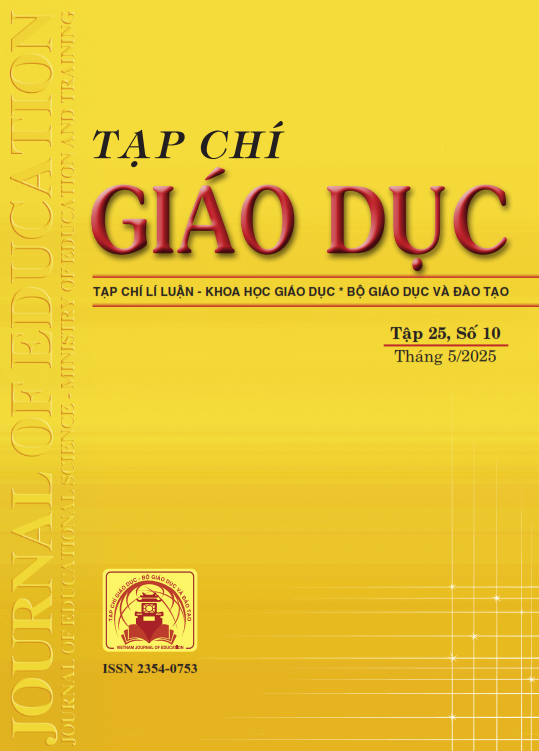Thực trạng môi trường giáo dục đại học Việt Nam: Góc nhìn từ phía cán bộ quản lí và giảng viên đại học
Tóm tắt
University autonomy and digital transformation have a great impact on changes in the higher education environment. The article analyzes and clarifies the current state of the higher education environment in Vietnam (teaching and learning environment, science and technology environment, community collaboration and development environment, university governance environment). The research results show that managers and lecturers highly appreciate the necessity and level of achievement regarding the components of the higher education environment, and propose 12 factors that have a great influence on changes in the higher education environment. The article argues that the Vietnamese higher education environment still has many shortcomings and limitations. However, higher education has obtained satisfactory achievements in promoting university autonomy, developing a modern, innovative and creative higher education environment.
Tài liệu tham khảo
Becker, S., Brown, M., Dahlstrom, E., Davis, A., DePaul, K., Diaz, V., et al. (2018). NMC Horizon report: 2018 higher education. Louisville, CO: EDUCAUSE.
Đặng Ứng Vận (2021). Đổi mới giáo dục đại học: Từ ý tưởng đến thực tiễn. NXB Đại học Quốc gia Hà Nội.
Jamieson, P. (2009). The serious matter of informal learning: From the development of learning spaces to a broader understanding of the entire campus as a learning space. Planning for Higher Education, 37(2), 18-26.
Manninen, J., Burman, A., Koivunen, A., Kuittinen, E., Luukannel, S., Passi, S., et al. (2007). Environments supporting learning: Introduction to learning-environment-thinking. Helsinki: Finnish National Board of Education.
Phạm Hồng Quang (2006). Môi trường giáo dục. NXB Giáo dục.
Phạm Hồng Quang (2014). Môi trường nghiên cứu khoa học giáo dục trong trường sư phạm. NXB Đại học Thái Nguyên.
Phạm Hồng Quang, Nguyễn Danh Nam (2023). Sự thay đổi và các giải pháp phát triển môi trường giáo dục đại học trong bối cảnh tự chủ đại học. Tạp chí Giáo dục, 23(số đặc biệt 9), 60-65.
Radcliffe, D. (2008). A pedagogy-space-technology (PST) framework for designing and evaluating learning places. In D. Radcliffe, W. Wilson, D. Powell, & B. Tibbetts (Eds.), Learning spaces in higher education: Positive outcomes by design (Proceeding of the next generation learning spaces 2008 colloquium; pp. 11-16). St Lucia, Queensland: The University of Queensland.
Van Note Chism, N. (2002). A tale of two classrooms. New Directions for Teaching and Learning, 92, 5-12.
Vercellotti, M. L. (2018). Do interactive learning spaces increase student achievement? A comparison of classroom context. Active Learning in Higher Education, 19(3), 197-210.
Tải xuống
Đã Xuất bản
Cách trích dẫn
Số
Chuyên mục
Giấy phép

Tác phẩm này được cấp phép theo Ghi nhận tác giả của Creative Commons Giấy phép quốc tế 4.0 .












